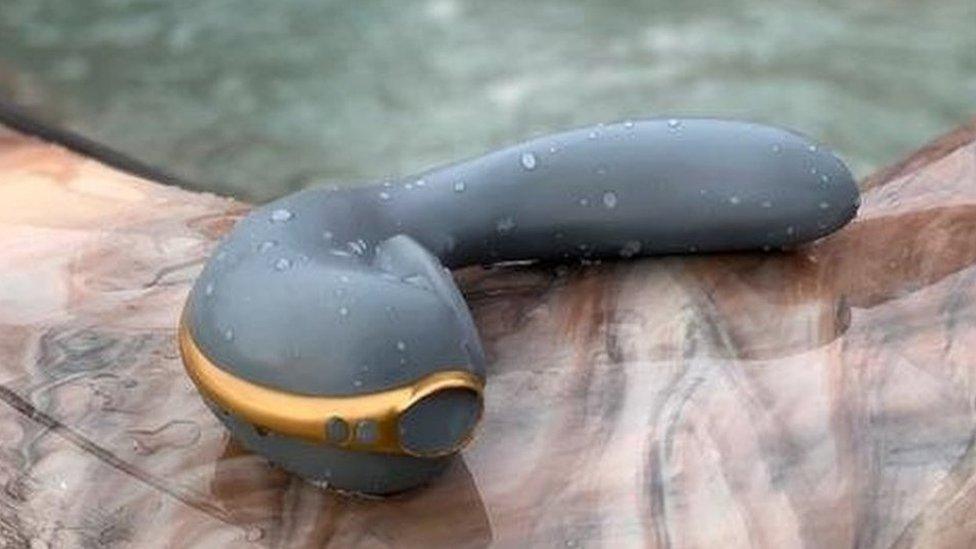CES 2019: America, China and tech's next step
- Published
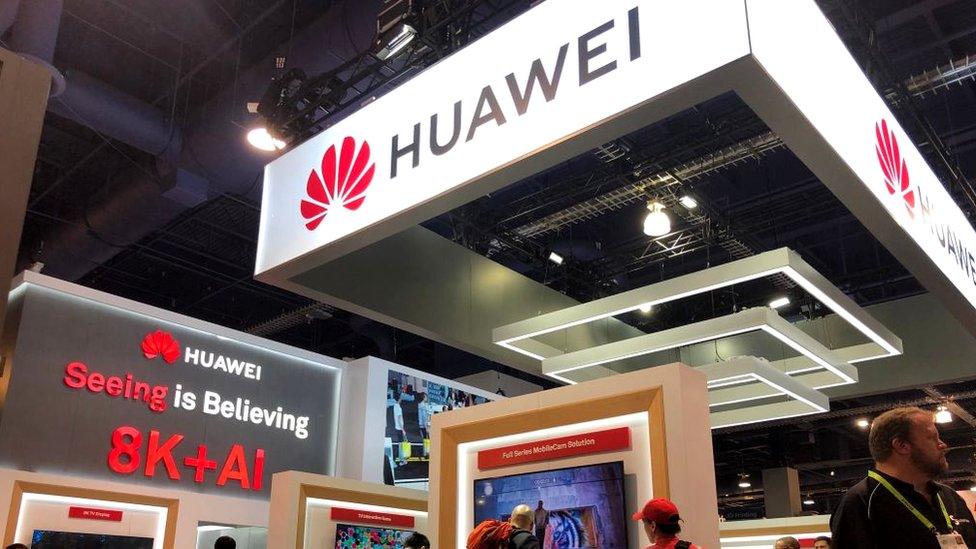
Huawei may not have any keynote speakers at CES, but the Chinese tech giant is still very much present
In a corner of the Las Vegas Convention Center, a row of Huawei Mate 20 smartphones are lined up, sparkling, for CES delegates to try out.
It's a typical scene at the trade show but one made slightly surreal by the fact that few Americans will likely ever own these phones. Right now, US networks don't offer any Huawei smartphones, because US security services are worried they could be used for Chinese surveillance.
And yet, Huawei has still decided to promote itself at CES in some force - at a time when the company's chief financial officer faces possible extradition to the US over accusations of bank fraud.
And in a climate where US-China trade relations are at boiling point.
"It makes business sense for them to come here," says Gary Shapiro, chief executive of the Consumer Technology Association, which runs CES.
"Because they can meet their buyers from all around the world. So they want to be here."
Missing firms
But Mr Shapiro may be putting on a bit of a brave face. There are significant indications that some of the best-known Chinese companies have, for this year at least, taken a step back from America's premier tech event.
Shenzhen-based ZTE, which had been at CES every year since 2011, was nowhere to be found at this year's show, despite being originally listed as an exhibitor. It has offered no explanation as to why, but last year Donald Trump signed an order that said ZTE equipment must not be used by the US government, or any company that wants to do public work.
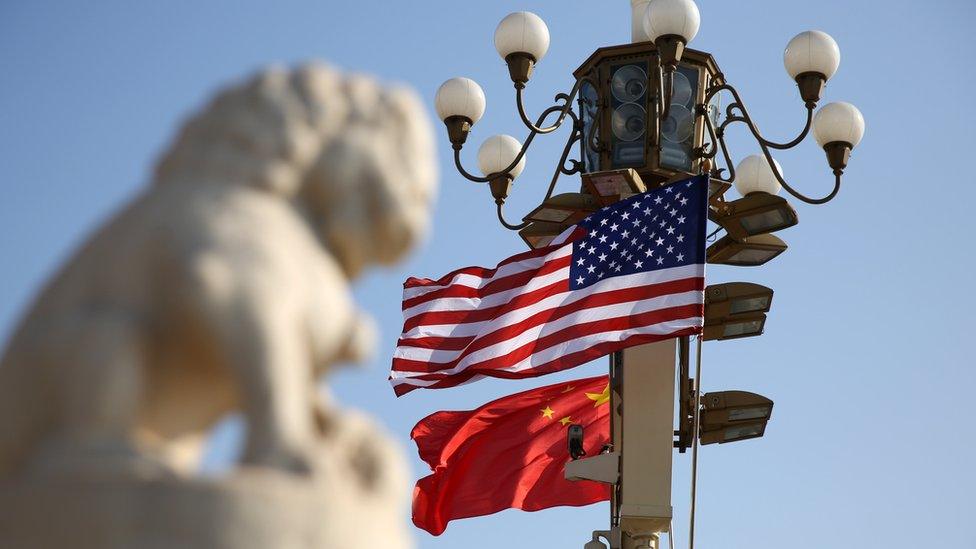
US-China trade relations are currently experiencing a rough patch
While Huawei does have a large stand, no executives are in attendance - a contrast to last year when Richard Yu, one of the firm's most senior figures, was a keynote speaker. This year, not a single Chinese company executive is expected to speak at the show.
More broadly, the CTA says it's too early to know whether the precise number of exhibitors from China is up or down on last year, until it carries out its audit of attendees.
It did tell the BBC, however, that in terms of physical floor space, the amount of room taken up by Chinese companies is roughly the same as 2018 - approximately 13-14% of the entire show. The likes of Alibaba, JD.com, Lenovo and DJI are all in prime locations.
War on trade
Earlier this month, a shockwave ripped through the technology industry: Apple announced that its revenues would be significantly lower when it reports its next quarterly earnings.
Chief executive Tim Cook blamed China's economic volatility, and suggested looming US-China trade tariffs are already having an effect.
Most analysts predict Apple will not be alone in reporting signs of strain. After all, fewer iPhones sold means fewer iPhones made in China. The complex tangle of supply chains and components sourced from all over the world in some respects makes the notion of an "American" or "Chinese" phone rather absurd.
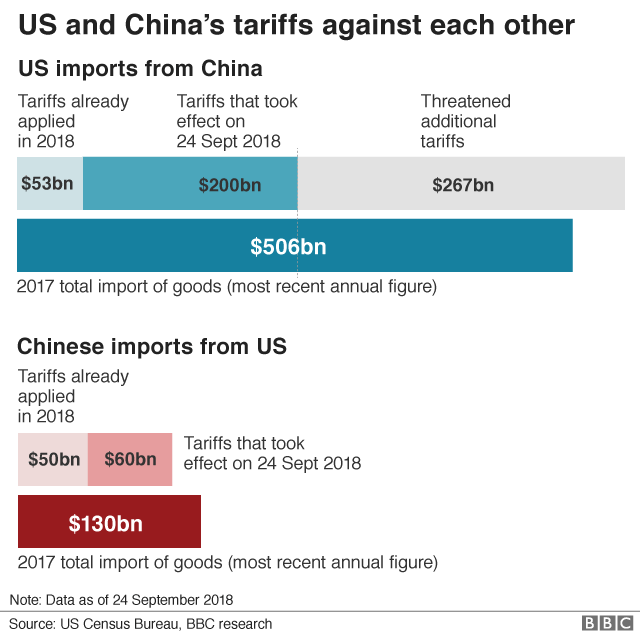
It's why all technology companies are looking very closely at the outcome of talks between Washington and Beijing. If the two sides are unable to strike a deal by 1 March, the tariffs will be in place.
If that happens, the business world will be reassuring itself that a change in leadership might repair the damage.
"I have to say the [Trump] administration's part of the current tensions," says Frank Gillet, an analyst with Forrester Research.
"So, if that administration changes then we're going to have a reset."
Even if the trade dispute dissipates, what isn't going anywhere is the growing atmosphere of suspicion between these two global superpowers over how they use their new technology.
This is coming to a head now because of the significant progress made by the Chinese tech industry over the past decade. It has shaken off its reputation as just a source of cheap, high-quality manufacturing, or as an irritating imitator of Western creativity.
Huawei took "Made in China" and made it "Designed in China". High-quality, genuine innovation and a price point that often came in significantly below comparable efforts from Apple.
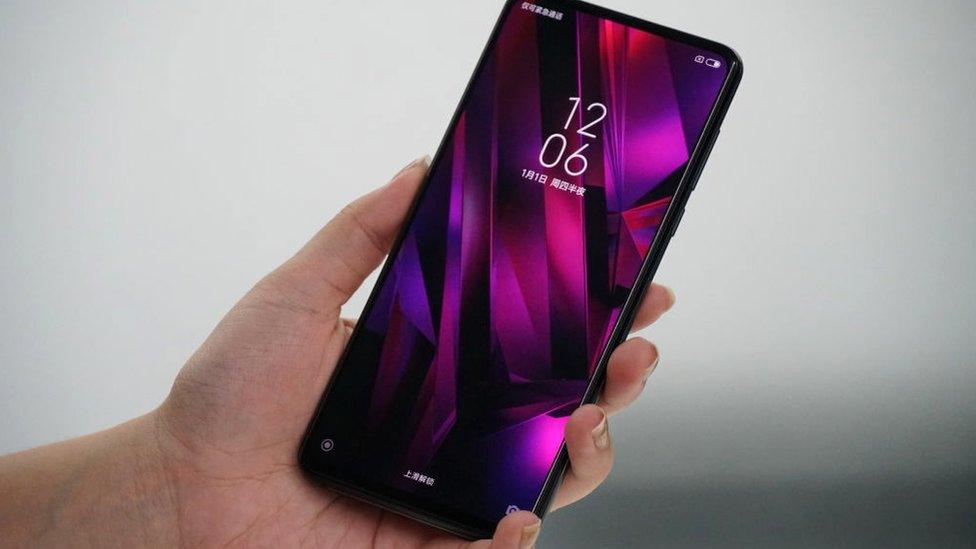
Chinese smartphone makers have become increasingly competitive, with Xiaomi for example offering a 5G-ready device
This has disrupted the smartphone world order. Huawei is currently second only to Samsung when it comes to global smartphone sales. Other Chinese brands like ZTE and Xiaomi are also selling well.
Smartphones are just the start. One of the next major innovations is the mass adoption of 5G, a technology that should offer 20 times the download speeds of 4G mobile networks.
To get there will require vast amounts of new networking infrastructure - and Huawei has positioned itself as a dominant - if not the dominant - supplier of equipment worldwide.
"Huawei is the only true supplier in 5G," says Huawei's security spokesman, Andy Purdy.
"Everyone is else is playing catch-up."
'Drumbeat of hostility'
The US government has blocked the use of Huawei's 5G equipment in the country, and has reportedly urged other allies to do the same. Other Chinese firms are subject to bans as well.
Huawei feels the move is anti-competitive.
"From the beginning of 2018 there's been a global drumbeat of hostility by the United States government against Huawei," Mr Purdy argues.
He adds that current political posturing is preventing progress from being made.
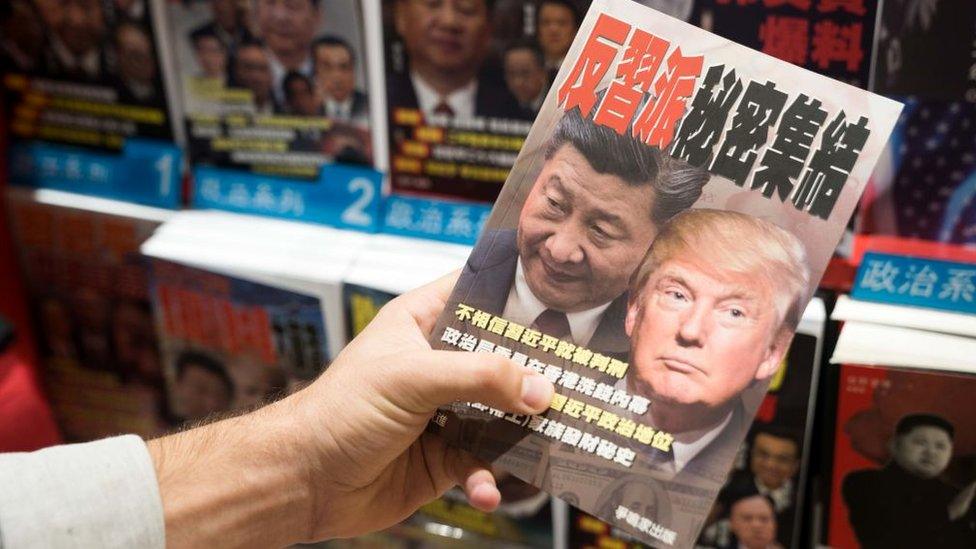
Some Chinese manufacturers feel the Trump administration is harming their business
"It's clear to us that whatever real cyber-security concerns exist regarding products, they can be addressed. But we have to have the conversations to address them."
Mr Purdy argues that globally many countries have embraced Huawei's technology - including the UK, which utilise Huawei products across
Differing philosophy
So will the US ever be fully open to China's business?
It's a question that is becoming harder to answer as China graduates into what is now a hub of innovation that is surpassing the progress of the West in profound ways.
When so much of the future is about how we capture and crunch personal data, breakthrough moments in technology - which we look for at CES - are less tangible.
The next big thing may not be a product, but a philosophy. What's more important to a prosperous society: innovation or liberty?
"The Chinese attitude towards privacy is actually helping them advance much more quickly," Mr Shapiro says.
"I would defend our European and American approach on liberty and individual rights. But I also think it has to be balanced against the need for innovation and competition."
Read and watch all our CES coverage at bbc.com/ces2019
- Published7 January 2019
- Published10 January 2019

- Published9 January 2019
